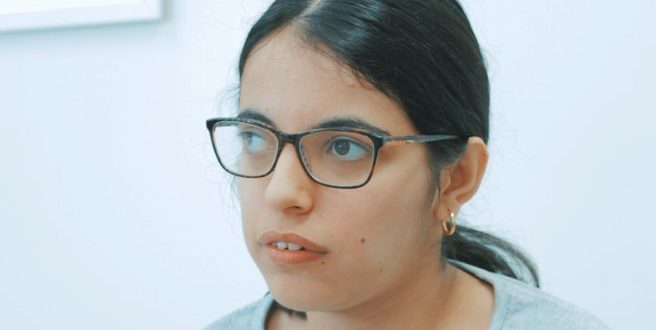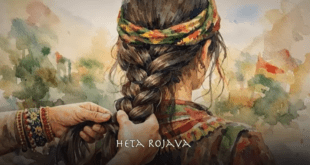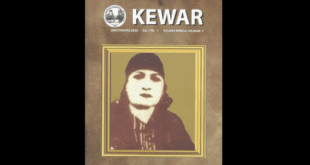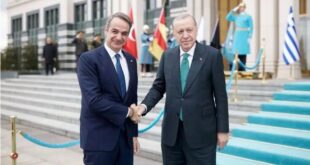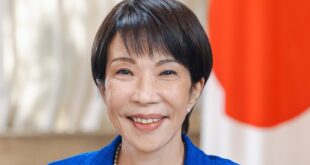The 5600-kilometre journey across most of continental Europe — crossing to Greece on a rubber dinghy, through eight countries and borders through Macedonia, Serbia, Croatia, Slovenia and Austria — was one made by countless refugees between 2014 and 2016.
Nujeen Mustafa is one of the strongest people You have ever meet
Sitting in an office skyscraper in the Sydney CBD, she’s a world away from where she started — her home in Germany, and her hometown of Aleppo, Syria.
Luckily, Nujeen is no stranger to long journeys.
“I fled in January 2014,” she said of leaving Syria. She called Aleppo “very beautiful, one of the best places you could go” — but staying there was not an option.
“That was when ISIS was closing in. We just knew that we had to leave… we were fed up with everything, of being worried all the time, of not knowing whether we would live tomorrow. We just fled to safety.”
Like many Syrian refugees, Nujeen and her family fled over the border to neighbouring Turkey.
But also like many Syrian refugees, the reprieve was only temporary and partial. They were no longer in immediate mortal peril from the civil war raging in the country, or from the ISIS terrorists, but their options for work, education, housing and even basic food were severely limited.
“I realised there was nothing on the horizon for the family,” Nujeen said.
“It was not much different from Syria. I could not go to school, I could not go on with my life. So we just took a shot, said ‘let’s go to Europe, let’s get this over with’.”
Nujeen was 16 when she and older sister Nasrine took the plunge, deciding to risk the perilous journey across Europe, looking for safety. Their intended destination: Germany, having heard that the country’s political leaders were opening the gates to refugees.
The 5600-kilometre journey across most of continental Europe — crossing to Greece on a rubber dinghy, through eight countries and borders through Macedonia, Serbia, Croatia, Slovenia and Austria — was one made by countless refugees between 2014 and 2016. Germany took in hundreds of thousands of refugees in that period, but few voluntarily tackled a journey as arduous as the one Nujeen and her sister did.
Nujeen was born with cerebral palsy. The sisters made the painstaking journey on foot, pushing Nujeen’s steel wheelchair all the way.
They travelled on roads of gravel and mud, not exactly friendly to wheelchair tyres. They travelled across the treacherous Aegean Sea on a rubber dinghy.
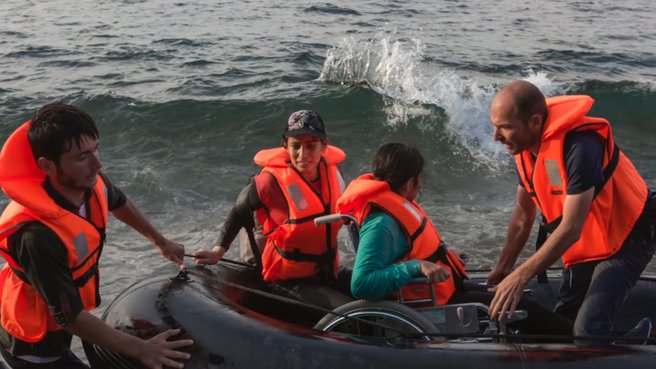
Nujeen and Nasrine, in the dinghy they crossed the sea.
But to listen to her tell the story, you’d never know how dangerous it was for Nujeen — now 20 — and her sister.
“I was quite ecstatic, I was going to explore Europe, I was going to see the world and meet people,” Nujeen told 10 daily.
“It looked like an adventure to me, like a game you watch or some kind of anime.”
They travelled on roads of gravel and mud, not exactly friendly to wheelchair tyres. They travelled across the treacherous Aegean Sea on a rubber dinghy. The sisters relied on the help and goodwill of other travelling refugees to help them up hills, off boats, along unsteady paths.
“There’s this sense of unity among the different groups of refugees. Everyone helps each other, shares their story,” Nujeen said.
“You share that same hope, that tomorrow will be a better day. It’s an experience as an immigrant that makes you go through an emotional roller coaster, but it deepens your awareness of human nature and what it could be like.”
Nujeen’s “adventure” was of the type most people would hope to never undertake. But the month-long trip saw her story go viral, as she was found by TV news crews and her journey beamed around the world.
She has since written a book, ‘ The Girl From Aleppo’, become a world-renowned public speaker on TED stages and international humanitarian conventions, and devoted recent years to campaigning and advocating for the rights of refugees with a disability.
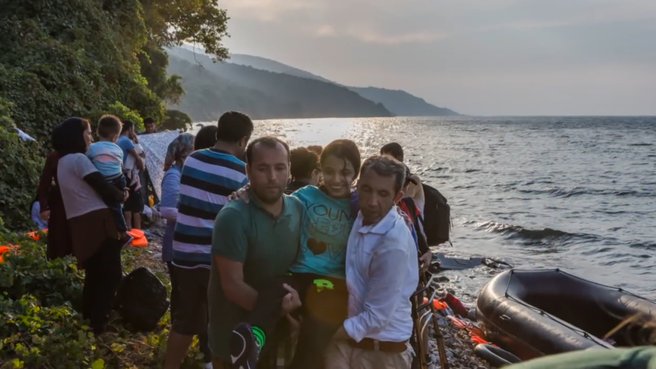
Other refugees helped the sisters along the way
The reason she is in Australia? Nujeen is being honoured by Human Rights Watch with the Alison Des Forges Award for Extraordinary Activism, having brought light to the plight of refugees with a disability.
“In Central African Republic, in Yemen, in Afghanistan, in Myanmar, what we’ve seen again and again is that people with a disability are often overlooked,” said Shantha Rau Barriga, director of HRW’s Disability Rights Division.
“Simple things like making toilets accessible in a refugee camp, instead we found they may be one step high and therefore someone who uses a wheelchair or a cane, or older persons as well, are not able to access something as basic as a toilet and are instead forced to crawl.”
“Of course they’re dealing with a number of competing priorities in an urgent situation, but in many of the conflicts we’ve been to, they have not been on the radar.”
“You always fear you will be the reason your family is one second too late before something strikes. I’ve had to live with that and deal with that,” she said.
“They might be left behind because they’re too heavy to carry, or just not important enough to be considered in their survival plan.”
Nujeen has worked with Barriga and HRW in shining more light on issues around refugees and disability, leading to promises from the European Commissioner that such issues would be made a priority in humanitarian missions.
“There’s been a fair amount of rhetoric and commitments, now the proof is in actually how it will be implemented and how it will be translated to the ground. We’re seeing pockets of good examples here and there,” Barriga said
“Give us our rights and we’ll be fine. We’ll make it on our own. No worries about that. We won’t be a burden on anybody.”
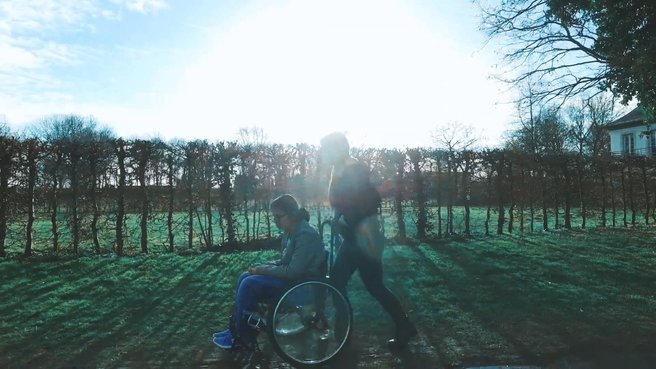
Nujeen and Nasrine.
“This group has largely been left off the UN security council agenda, and we need to be doing more… to recognise that people with a disability, just like women and children and older persons, are a group that is more at risk of being left behind, of being targeted, of being in dire situations in the conflict.”
Nujeen left us with a blunt message for policymakers, aid agencies and world leaders who are making the decisions on refugees, saying that a disability should not be a person’s defining feature.
“This whole stigma around [people with a disability] should just disappear. A disability is a part of you but it does not define who you are as a person and what you can do,” she said.
“Give us our rights and we’ll be fine. We’ll make it on our own. No worries about that. We won’t be a burden on anybody.”
Now she’s in Germany, and happy.
 Infowelat Enformasyon Ji Bo Welat
Infowelat Enformasyon Ji Bo Welat
